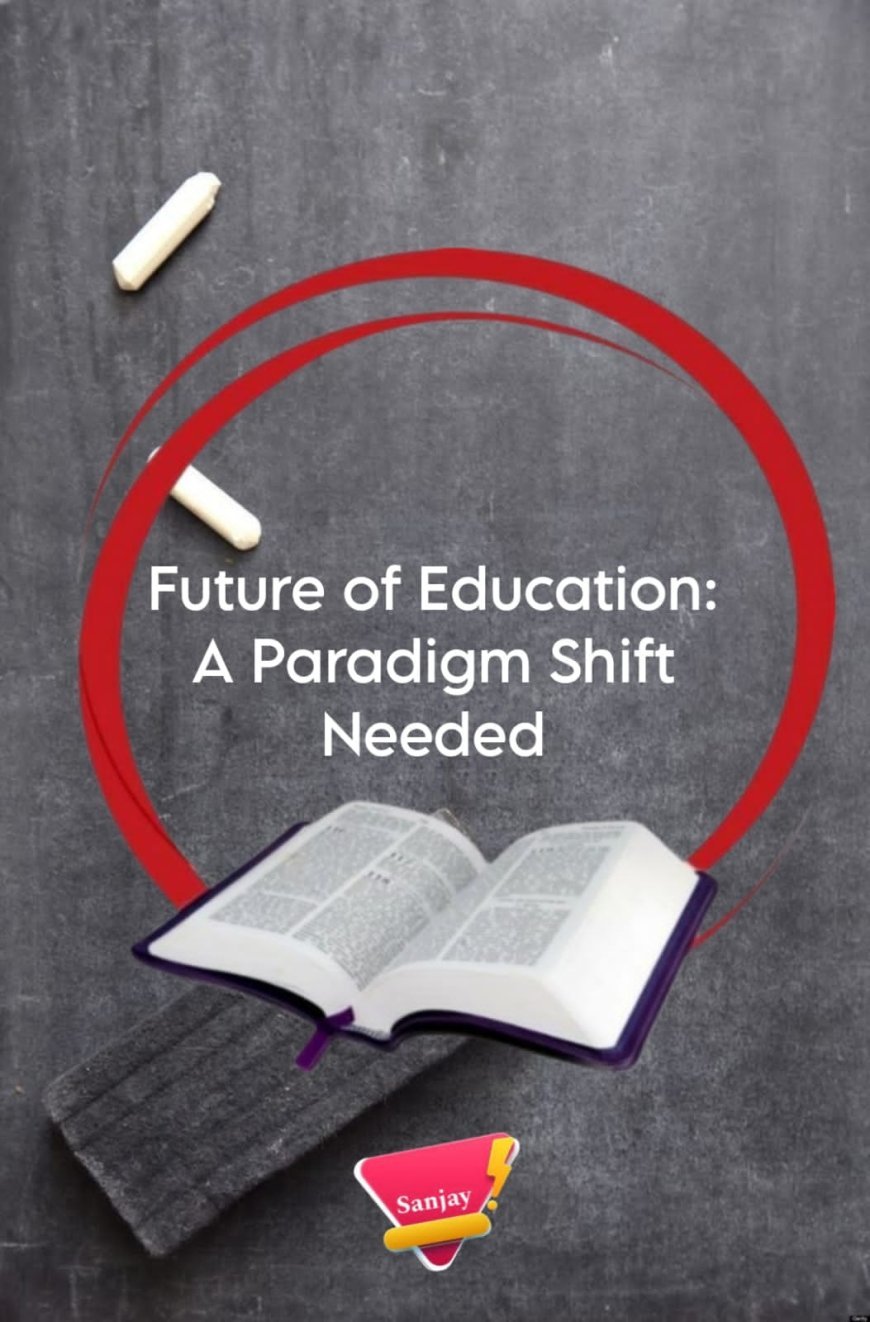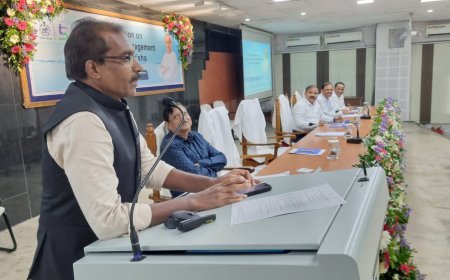Future of Education: A Paradigm Shift Needed

Education has always been regarded as the cornerstone of societal development. However, our current education system has failed to recognize and nurture the inherent talents of students. Merely acquiring degrees cannot and should not be the yardstick to measure one’s abilities. In the rapidly evolving world where Artificial Intelligence (AI) and Robotics are becoming the defining forces of the future, our education system needs an urgent overhaul to prepare students for a tech-driven tomorrow.
*The Current Scenario*
The methods and syllabi followed in Indian schools have barely evolved since the pre-independence era. This rigid adherence to outdated practices has stifled creativity and innovation. Consider this: essays like "A Visit to a Railway Station" are still part of the curriculum in government schools. Ironically, many students in these schools have never even been to a railway station, making this exercise irrelevant and uninspiring.
Real-life anecdotes further highlight the shortcomings of our education system. A tenant of mine, an electrical engineer in a government job, failed to identify and fix a short circuit in our home. In contrast, an uneducated youth, without any formal engineering degree, resolved the issue in half an hour. Such examples underscore the disconnect between theoretical knowledge and practical application.
Similarly, the boastfulness of a young M.Phil holder in Mathematics was put to the test when he failed to define a basic concept like a prime number, dismissing it as “primary school knowledge.” Even a highly educated individual in English literature admitted to forgetting the correct sequence of the English alphabet. These incidents raise serious questions about the value of degrees when they fail to translate into real-world competence.
*The Need for Change*
The National Education Policy (NEP) 2020, while promising on paper, appears to be "old wine in a new bottle." Its implementation has been slow, and its practical impact remains unseen. If our education system continues on this trajectory, it will fail to equip students with the skills needed for the future.
*The Path Forward*
1. Integration of AI and Robotics:
Starting from primary education, students should be introduced to AI, Robotics, and other emerging technologies. These fields are no longer futuristic but integral to our present and future. Early exposure will help students adapt and innovate in these domains.
2. Practical Skill Development:
Theoretical knowledge must be complemented with hands-on training. Whether it’s a subject like Mathematics or vocational training, real-world application should be prioritized over rote learning.
3. Personalized Learning:
Every child is unique, with distinct talents and interests. The future of education should focus on personalized learning paths, leveraging AI to identify and nurture individual strengths.
4. Revising the Curriculum:
The curriculum needs to reflect the realities of the modern world. Irrelevant topics and outdated methods should give way to lessons that inspire creativity, critical thinking, and problem-solving.
5. Focus on Emotional Intelligence and Ethics:
Alongside technical skills, students must be taught emotional intelligence and ethical responsibility, especially when dealing with powerful technologies like AI.
*Conclusion*
Degrees, by themselves, are no longer sufficient to ensure success. The future demands a system that emphasizes innovation, adaptability, and practical skills. The transformation of our education system is not merely an option but an imperative. By embracing change and aligning with the technological advancements of the 21st century, we can prepare students not just to survive but to thrive in the future.
This shift is long overdue, and the sooner we act, the brighter our future will be.
Sanjay Pattnayak
Sundargarh












































